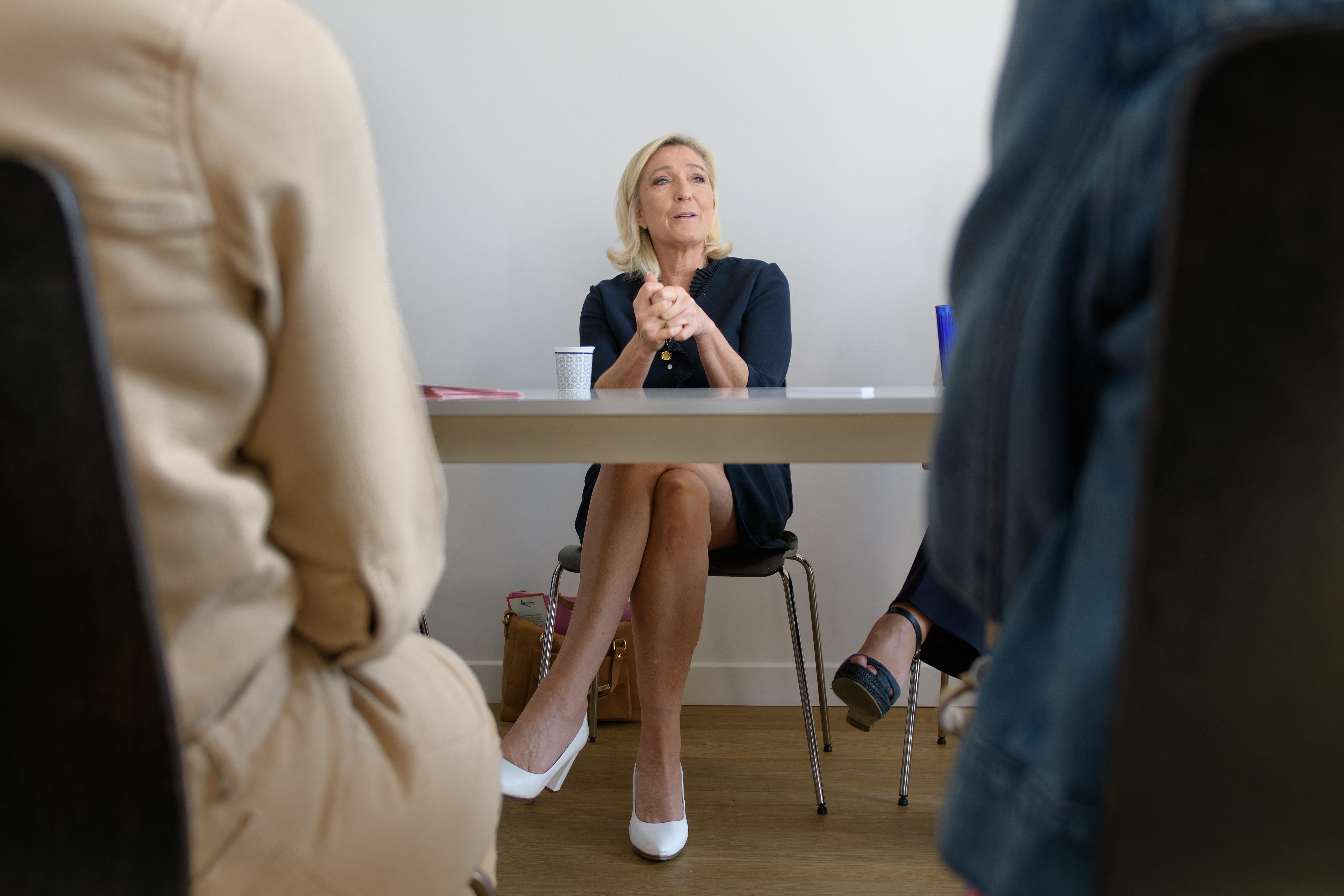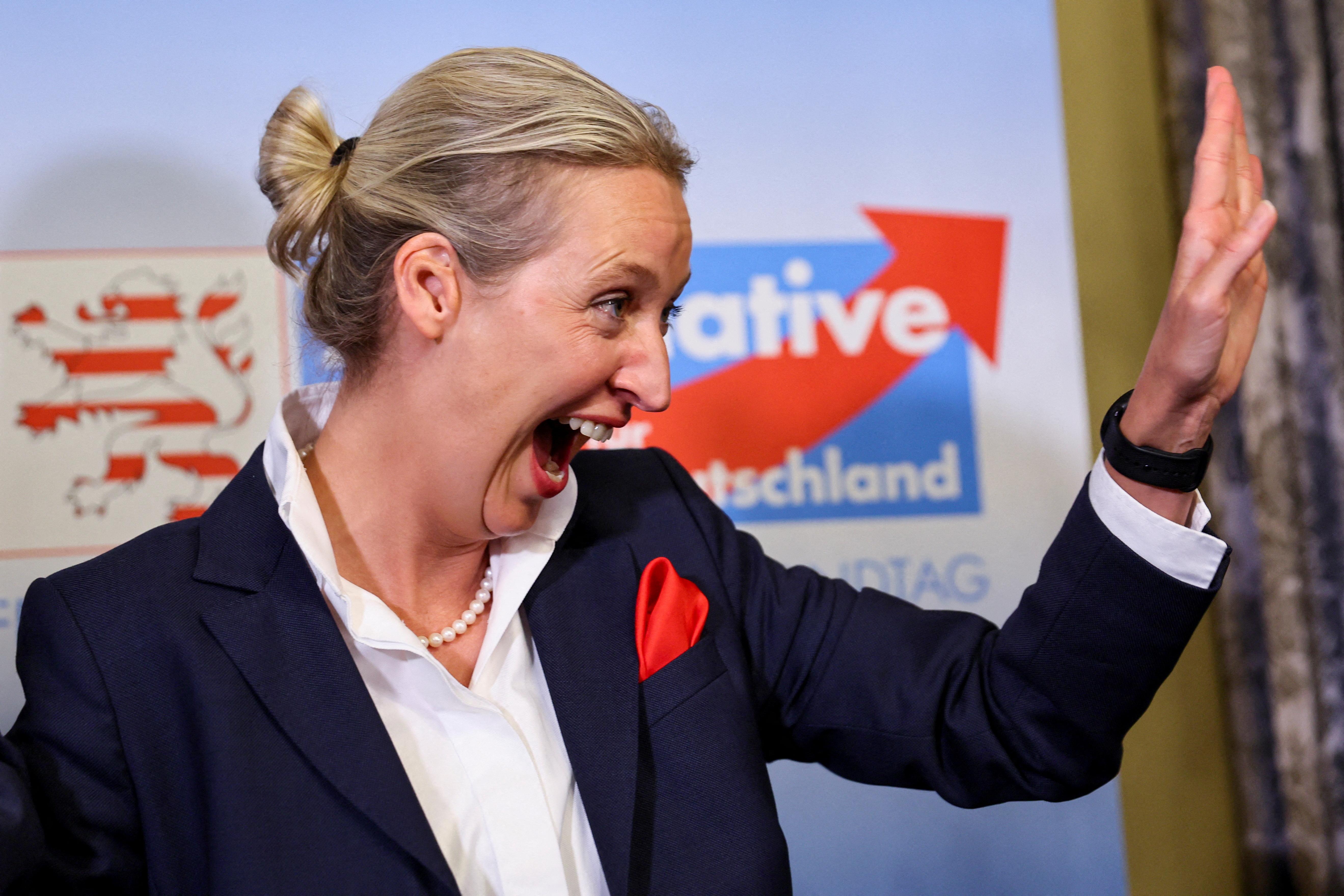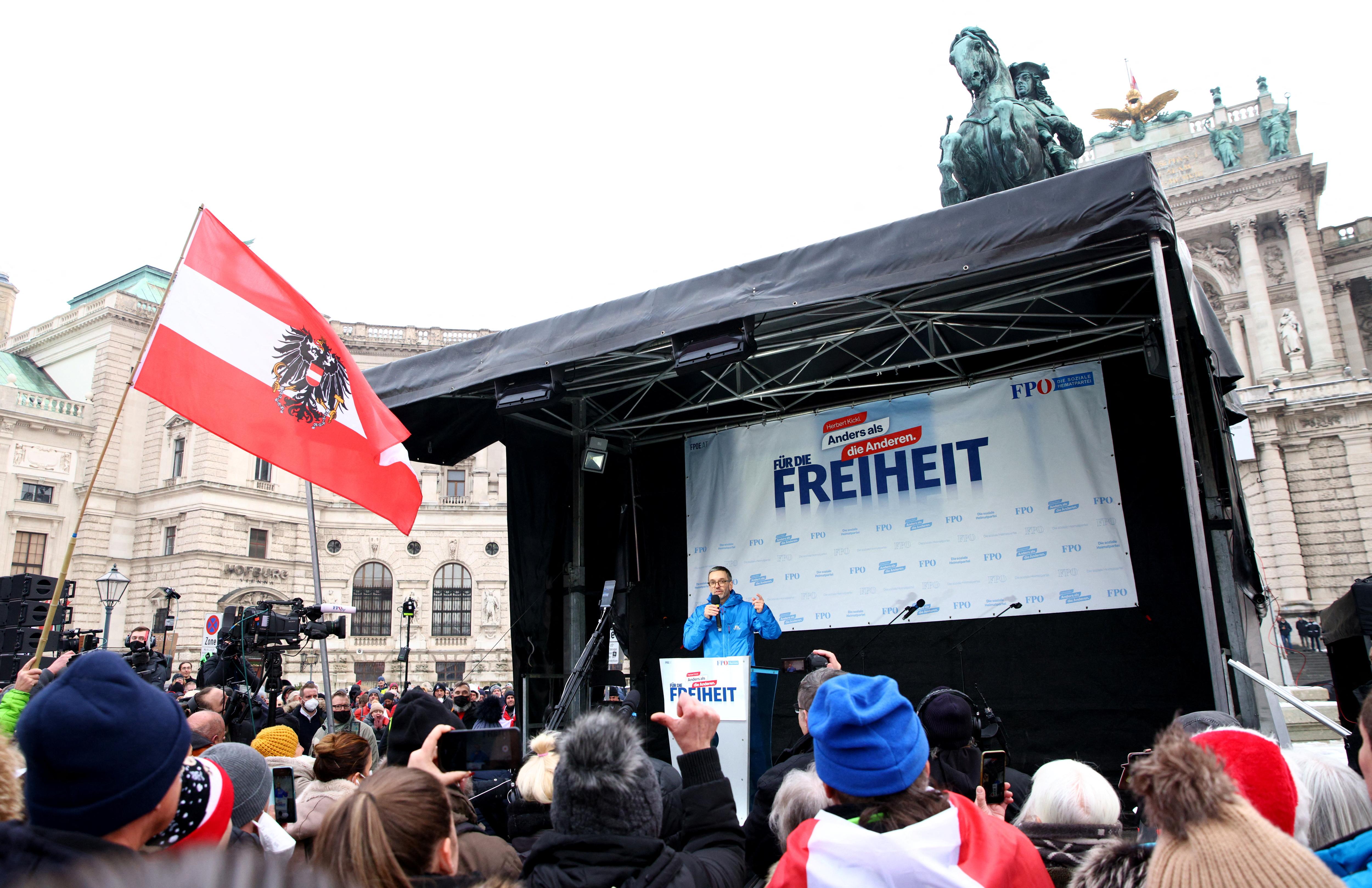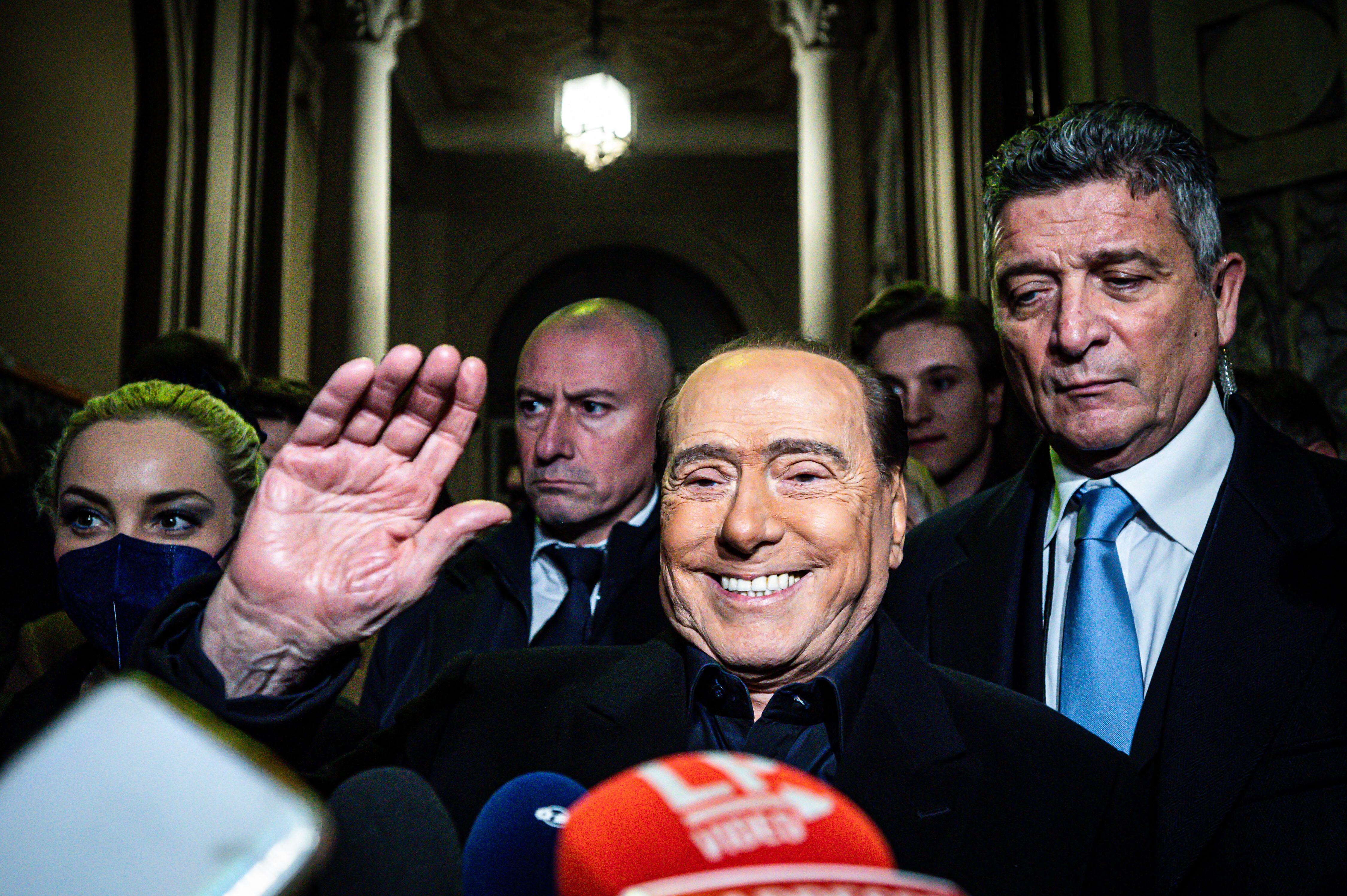Russia’s tactic in the ongoing conflict with Ukraine is to persuade the Western powers to withhold aid to Kyiv. To do so, the Kremlin spreads propaganda to support pro-Russian political parties by using a network of spies and new technologies, U.S. officials told The New York Times on condition of anonymity. The growing popularity of radical and populist parties in Europe may indicate the effectiveness of this strategy by Moscow.
Robert Fico’s Smer-SD party, which stands for Direction – Social Democracy, emerged victorious in Slovakia’s parliamentary elections on September 30. Fico had previously served as the country’s Prime Minister. He resigned in 2018 following protests over the murder of investigative journalist Ján Kuciak and his fiancée. Now the former prime minister may return to power if he manages to form a coalition.
Fico is against any punitive measures aimed at Russia and Ukraine’s admission to NATO. He supports reducing military assistance to Kyiv. As the Financial Times notes, if the former prime minister gains power, Slovakia could become a “second Hungary”, whose leader Viktor Orbán lobbies for Russian interests in the European Union.
This scenario is not only possible in Slovakia. Putinversteher (a term for sympathisers who literally “understand” Putin and his policies) are becoming increasingly popular in Germany and other European countries.
"Putin's friends" in Europe
Pro-Russian forces in the EU are represented by either far-right nationalist or extreme left-wing socialist and communist parties. In certain countries, they receive substantial backing while in others they face exclusion and no parliamentary representation. Let us elaborate on the most striking examples.
France: The decline of the Renaissance
For almost all of 2023, the French have been protesting pension reform and police violence. The Renaissance party, who back Emmanuel Macron, are becoming less popular. This is not the case for the National Rally (Rassemblement National) and New Ecological and Social People’s Union (Nouvelle Union populaire écologique et sociale) which use pro-Russian rhetoric.
National Rally was headed for a long time by Marine Le Pen. She was succeeded as party chairman by Jordan Bardella in September 2021, but Le Pen continues to be the informal leader.
The party has been repeatedly accused of receiving funding from Russia. In 2014, Front National (as the National Rally was then called) received €11 million in loans from Russian banks. Le Pen said that this money must be returned by the party, so it cannot be considered a form of Russian funding. Marine Le Pen did not keep quiet on her views supporting Russia even after the takeover of Crimea in 2014: she referred to Vladimir Putin as a like-minded politician, claimed that “Crimea is a part of Russia” and advocated for the removal of European sanctions.
After the full-scale Russian invasion of Ukraine, Le Pen briefly changed her rhetoric. During the 2022 election campaign, she condemned Russian aggression and destroyed printed campaign materials with a joint photo with Putin. But in 2023, she began to make speeches again that stated sanctions were not effective, negotiations with the Kremlin were necessary, and Ukraine should only be supplied with defensive weapons rather than offensive ones.
In the June 2022 elections for Parliament, the National Rally won 18.68% of the votes in the first round – an increase of 5% compared to the previous election.
New Ecological and Social People’s Union is a coalition of French socialists, communists and Greens. Its leader Jean-Luc Mélenchon has repeatedly criticised NATO expansion and has spoken out against anti-Russian sanctions imposed for the annexation of Crimea.
After 24 February 2022, he criticized Russia’s attack on Ukraine, but also held NATO partly responsible and objected to providing weapons to Kyiv.
In the June 2022 parliamentary elections, the coalition came second with 25.66% in the first round. That’s double what Mélenchon’s Rebellious France (La France Insoumise) party received in the 2017 election.
According to May polls, Le Pen and Mélenchon’s parties are the most popular in France. The ruling Renaissance holds the third place.
Germany: The extremes of the political spectrum
The main Putinverstehers in Germany are Alternative for Germany (Alternative für Deutschland) and The Left (Die Linke).
The former is an extreme right-wing party with a nationalist, anti-Semitic and partly racist ideology. Alternative for Germany (AfG) has traditionally supported Russia. Since 2014, its representatives have called for the lifting of anti-Russian sanctions. They paid official visits to Russia and annexed Crimea. German media have repeatedly accused the AfG of receiving direct funding from the Kremlin.
On 27 February 2022, Alice Weidel, the leader of the Alternative for Germany, condemned Russian aggression against Ukraine. However, she stated that Russia’s actions are justified in reaction to NATO’s efforts to approach its borders. Weidel also said the sanctions would hurt German citizens more than Russia.
Electoral support for Alternative for Germany is growing. In September 2021, the party won 10.3% of the vote in the parliamentary elections. In October 2023, its rating figures up to 21%.
The Left is a socialist party formed from the Socialist Party that was in power in 1949-1990 and representatives of the left wing of Germany’s Social Democrats.
At the 2017 congress, The Left refused to condemn the annexation of Crimea and the occupation of Donbas, blaming the EU and NATO for the conflict. However, following the commencement of all-out war in June 2022, the party adopted a resolution denouncing Russian aggression. But already in August, its representative said that the destruction of the German economy due to anti-Russian sanctions will not help Ukraine. The Left has also systematically opposed arms deliveries to Kyiv.
In parliamentary elections in 2013 and 2017, the party garnered about 9% of the vote. In 2021, its support dropped – they got just 4.9%. Polls demonstrate that 4% of German citizens were ready to vote for The Left in September 2023.
Austria: "Putin's friends" leading in ratings
In Austria, pro-Russian forces are represented by the extreme right-wing Freedom Party of Austria (FPA, Freiheitliche Partei Österreichs). In December 2016, it signed a cooperation agreement with the United Russia party. In 2018, then-party leader Heinz-Christian Strache called for the lifting of anti-Russian sanctions imposed after the annexation of Crimea.
After 24 February 2022, FPA continued to demand the cancelling of EU sanctions against Russia with eight draft resolutions and 280 press releases. On 30th March 2023, MPs from FPA left the parliamentary hall during a video address by Volodymyr Zelenskyy and left posters with the party’s logo and slogans “A place for neutrality” and “A place for peace” on the tables.
In the 2019 parliamentary elections, FPA received 16% of the vote. According to September polls, its approval rating has risen to 29%. At the time of publication, it is the most popular party in Austria.
Italy: pro-Russian forces in the pro-Ukrainian coalition
“Friends of Putin” in Italy are represented by three parties: League (Lega), Forward Italy (Forza Italia) and Five Star Movement (Movimento 5 Stelle).
League is a right-wing populist and nationalist party. Its leader Matteo Salvini was photographed in Moscow’s Red Square in 2014 after the annexation of Crimea wearing a T-shirt with Putin’s image. In 2018, he said that EU sanctions against Russia were not only useless but also harmful.
In 2019, the press released an audio recording of discussions between League party members concerning obtaining $65 million from Russia in exchange for advocating for a Russian state-owned oil trade. After that, the Milan prosecutor’s office launched an investigation. However, in April 2023, the case was dismissed. The judge commented that the negotiations aimed to fund the party illegally, but there was no evidence to accuse the suspects of any crime. League did not receive this money, and the Russians involved in the transaction could not be identified due to Russia’s refusal to respond to court requests.
After the full-scale war began, Salvini condemned the invasion. But as of June 2022, he opposed further arms deliveries to Ukraine. In September of that year, he claimed that the sanctions against Russia were not effective and were causing harm to Italy.
In 2019, League’s support was nearly 40%. In February 2022 it dropped to about 17%. In the extraordinary parliamentary elections in September 2022, Lega received about 9% of the vote. According to September polls, its support stands at 9.7%.
Forward Italy is a right-wing party founded by the late former prime minister Silvio Berlusconi. As head of the Italian government, he maintained warm relations with Vladimir Putin and called the annexation of Crimea legal.
For quite a while, Forward Italy did not state its stance regarding the Russian attack on Ukraine. However, in September 2022, a few days before the parliamentary elections, Berlusconi said that “aggression against Ukraine is unjustified and unacceptable”. At the same time, he attributed part of the responsibility for the situation to NATO and proposed that Europe “brings forward the topic of a peaceful resolution and supports Ukrainians in complying with Putin’s requirements”.
Italian Foreign Minister Antonio Tajani, who led the party after Berlusconi’s death, holds different views on the Russia-Ukraine conflict. In May, he said that he supported Kyiv’s proposals for a peace settlement and that negotiations were impossible without taking them into account because otherwise, it would be “not about peace, but about Ukraine’s defeat”.
Support for Forward Italy was around 9% before the outbreak of full-scale war. It received 8.12% in the September 2022 parliamentary elections. Support dropped to 7% in September this year.
Five Star Movement is a populist party that has long called for an EU-Russia dialogue and, together with League, protested against anti-Russian sanctions. Its leader Giuseppe Conte has also consistently opposed military aid supplies to Ukraine.
In the 2018 elections, the Five Star Movement became Italy’s most popular party with over 32% of the vote. However, it lost support over time. In February 2022, before Russia invaded Ukraine, it was around 14%. In early parliamentary elections last September, Five Star Movement came third with just over 15% of the vote. As of the end of September 2023, its support stands at 17%.
In September 2022, League and Forward Italy entered a coalition with Giorgia Meloni and her Brothers of Italy (Fratelli d’Italia) party, which won the last parliamentary elections. Despite the stance of the allies, Meloni favours increased aid to Ukraine. Five Star Movement was not included in the coalition.
Pro-Kremlin voices are quiet in the European Parliament
Significant electoral support for pro-Russian parties has little effect on EU policy toward Russia. Novaya Gazeta Europe examined the European Parliament’s voting outcomes for the past four years and discovered that “friends of Putin” often refrain from voting or don't vote on Russia-related concerns. Of the 705 MEPs, an average of 531 (75%) supported the anti-Russian resolutions. Just over 40 (6%) voted against – also on average. Another 6% preferred to abstain. The rest – under 13% – did not attend meetings or did not vote.
This number of “absentees” appears unusual. An average of 4.3% of MEPs did not vote on any topics in 2019-2022. That is, some of them deliberately do not vote on Russia-related documents, Novaya Gazeta Europe notes.
Out of the 22 resolutions examined that were passed in 2019-2023, the French National Rally in the European Parliament opposed or refrained from voting on anti-Russian resolutions in nearly 80% of cases. The German The Left did so in less than 60% of cases, and the Italian League – in only about 10% of cases.
Pro-Kremlin parties in Europe continue to lobby for Russian interests even after 24 February 2022. At the same time, they often do not vote against anti-Russian resolutions, but rather pay lip service to condemning aggression on the part of the Russian Federation. The explanation for this can be found in a study conducted by the Jean-Jaurès Foundation in February 2023. Most Europeans sympathise with Ukraine, it claims, including the electorate of far-right and left-wing parties.
According to a survey conducted by the foundation, in France, 62% of Mélenchon supporters and 49% of Le Pen supporters side with Ukraine. At the same time, 19% of Le Pen’s voters support Russia in this conflict. Among fans of Alternative for Germany, 41% support Russia, while 36% have pro-Ukrainian views. And among those who vote for German The Left , 52% sympathize with Ukraine and 30% with Russia. In Italy, 56% of the far-right electorate supports Ukraine.
Aid to Ukraine is not stopping any time soon
The potential rise of pro-Russian groups in some European nations won’t result in any major shift in the EU’s stance towards Russia and Ukraine. The anti-Russian sanctions were imposed unanimously by all 27 EU members. The same unanimity is needed to abolish them. If a single country opposes it, the sanctions already imposed will not be lifted.
It will not be possible to impose new sanctions with the dissent of at least one EU member either. However, as per the EU High Representative for Foreign Affairs Josep Borrell, nearly all the limitations that can be enforced on Russia have been implemented.
The termination of Western military assistance to Ukraine is not threatening either. Most of the weapons are anyways supplied by the US. From the beginning of the war until 31 July 2023, Washington has pledged to transfer €42.1 billion worth of arms. Over the same period, Germany has pledged €17.1 billion and the UK €6.6 billion.
The BIC explains why the U.S. is not supplying Ukraine with more weapons in the article “To arm to win. What prevents Ukraine’s allies from putting end to war”.
In the UK, the main political forces are in favour of continuing arms deliveries to Ukraine.
In Germany, opponents of military aid to the Ukrainians are strong, but their rise to power is unlikely. To form a government in the FRG, it is necessary to get at least 50% of mandates independently or as part of a coalition. As of the end of September, Alternative für Deutschland is second in ratings with 21% support, and all other German parties have so far refused to enter into a coalition with it.
Austria, where pro-Russian forces are actually victorious, has so far not been a donor of military aid to Ukraine (providing only financial and humanitarian aid). Italy has pledged about €700 million in military aid as of 31 June 2023, while France has pledged €500 million. Other countries where the positions of “Putin’s friends” are strong offered even smaller amounts.
Military assistance to Ukraine is provided not only by individual European countries but also by the European Union. The European Peace Facility, which is financed by contributions from EU members, is used for this purpose. Since the start of the full-scale war, the Ukrainians have received €3.6 billion from this fund. Since May, however, Hungary has blocked aid from the fund.
If pro-Russian forces come to power in other EU countries, it could become even more difficult for Ukraine to get money from it. However, Politico quoted five European diplomats as saying that the EU is planning to set up a new fund to help the Ukrainian army. Its budget will probably be €20 billion and will be agreed in advance, minimising the influence of “Putin’s friends” and speeding up the allocation of tranches.






